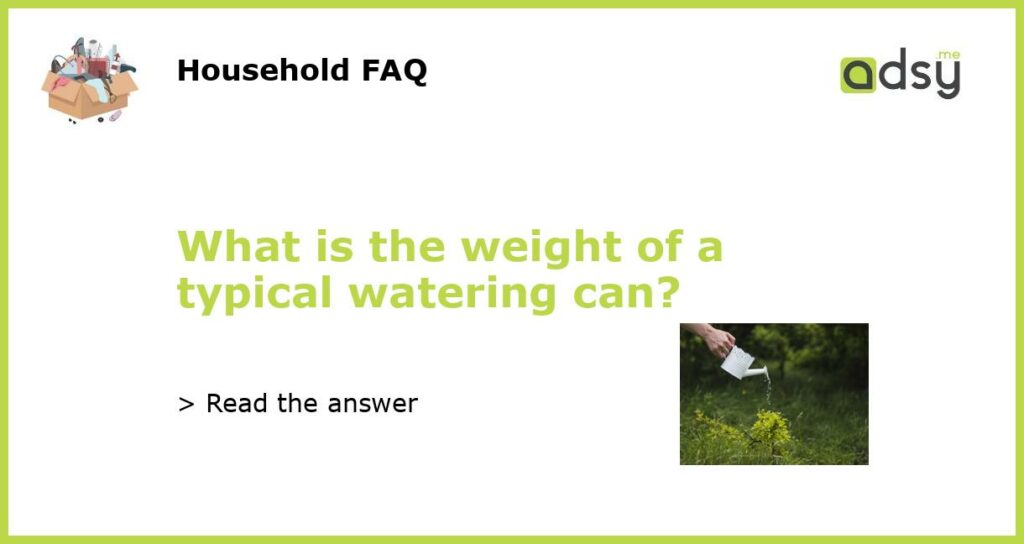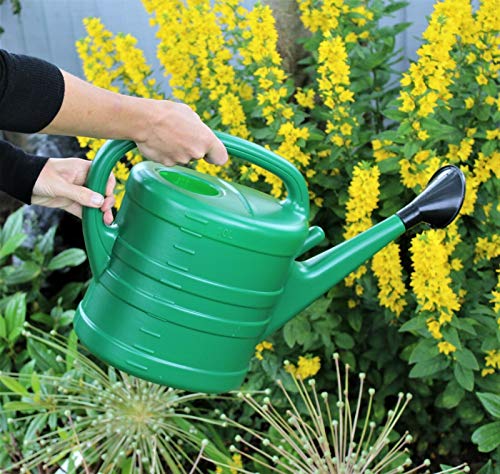What is the Weight of a Typical Watering Can?
Watering cans are commonly used for gardening and household chores. They are designed to make it easy to carry and distribute water. The weight of a typical watering can can vary depending on various factors. Let’s explore these factors and find out what the average weight of a watering can is.
Factors Affecting the Weight of a Watering Can
1. Material: Watering cans can be made of different materials such as plastic, metal, or stainless steel. Each material has a different weight. Plastic watering cans tend to be lighter, while metal or stainless steel cans are heavier.
2. Size: Watering cans come in different sizes, ranging from small ones with a capacity of a few liters to larger ones that can hold several gallons of water. The size of the can directly affects its weight. Smaller cans will be lighter, while larger cans will be heavier.
3. Design: The design of the watering can also plays a role in its weight. Some cans may have additional features such as spray nozzles or extra handles, which can add to their weight.
The Average Weight of a Watering Can
On average, a typical plastic watering can with a capacity of 2-3 liters weighs around 1-2 pounds (0.5-1 kg). This is a lightweight option that is easy to carry and maneuver. It is suitable for small gardens or indoor plants.
On the other hand, larger metal or stainless steel watering cans with a capacity of 5-10 gallons can weigh between 8-15 pounds (3.5-7 kg). These cans are more durable and suitable for larger outdoor gardens or commercial use.
Tips for Choosing the Right Weight
When choosing a watering can, consider the following tips to select the right weight for your needs:
1. Consider your strength and mobility: If you have limited strength or mobility, opt for a lightweight plastic watering can. This will make it easier for you to carry and pour water without putting strain on your muscles.
2. Size of your garden: If you have a small garden or only a few potted plants, a lightweight watering can will be sufficient. However, if you have a large garden or need to water plants at a distance, a heavier can with a larger capacity may be more suitable.
3. Storage and portability: Consider where you will store the watering can and how easily you can transport it. Smaller and lighter cans are easier to store in compact spaces, while larger cans may require more space and effort to move around.
The weight of a typical watering can varies depending on factors such as the material, size, and design. Plastic watering cans are lightweight and suitable for small gardens or indoor use, while metal or stainless steel cans are heavier and more durable for larger outdoor gardens or commercial use. Consider your needs and preferences when choosing the weight of a watering can to ensure it is easy to use and meets your gardening requirements.






